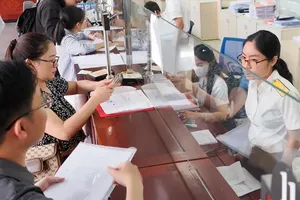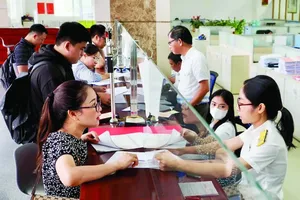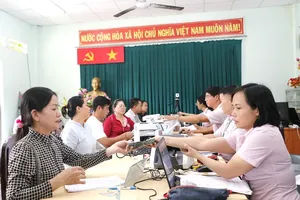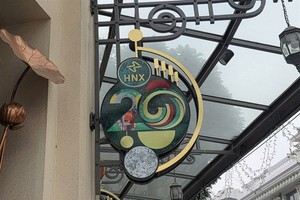Shortly after the Government issued Resolution 05/2025/NQ-CP (Resolution 05) introducing a pilot framework for Vietnam’s tokenized asset market, several blockchain companies announced they would temporarily suspend services for domestic users.
)
Yet, on international platforms, Vietnamese digital asset investors continue to trade actively.
Trading shifts offshore amidst domestic suspension
Following the introduction of Resolution 05, platforms such as Coin98 Wallet, KyberSwap, and Aliniex publicly declared the suspension of their services in Vietnam to comply with new legal requirements. However, this move represents only the visible tip of the iceberg in the broader digital asset trading scene. Despite these restrictions, many Vietnamese investors remain active on global exchanges like Binance, Bybit, and OKX, as well as on numerous smaller, lesser-known platforms.
Under the guidance of an experienced trader, some people downloaded the Binance app. After completing a simple identity verification process, they were able to purchase USDT, then use it to buy Bitcoin (BTC). Within a few sessions, they sold the BTC and withdrew the funds smoothly, paying only a 0.1 percent service fee.
On social media, the number of participants in cryptocurrency trading groups is massive; most groups have 40,000 to 50,000 members, and some even exceed 100,000. Many members use “clone” accounts or remain anonymous. Within these groups, investors constantly share market updates and troubleshoot issues related to deposits and withdrawals. But these communities also serve as gateways for broker groups (IBs) to attract new investors to various exchanges with promises of high profits and exclusive investment opportunities.
According to the investor who invited others to join an exchange, participants could also act as brokers to earn commissions for referrals. He further introduced a long-term investment scheme claiming annual returns of up to 50 percent, requiring no daily monitoring. The exchange, he said, was headquartered in Asia but held digital asset trading licenses in Europe.
However, many investors consider the above-mentioned investor essentially a Vietnam-based exchange, given the overwhelming number of local participants. From a Telegram group, certain individuals were invited to a VIP signal group that charges a membership fee of US$50, which provides portfolio guidance and trading signals for both Spot and Futures contracts. Members of these groups frequently collaborate to generate market movements that attract newcomers into high-risk leveraged Futures trades, all under the pretense of rapid financial gain.
Regulatory uncertainty and unmitigated risk
Commenting on the current state of the crypto market, Director of the Analysis Division at Maybank Securities Vietnam Quan Trong Thanh stated that while Resolution 05 has been issued, more time is needed for detailed guidelines to be put in place. Businesses, too, require significant preparation before submitting applications and receiving pilot licenses. While waiting for a domestic exchange to be established, managing the flow of investor funds remains challenging.
Currently, according to Resolution 05, after a period of six months from the date the first crypto asset service provider is licensed, domestic investors who trade crypto assets without going through a service provider licensed by the Ministry of Finance will be subject to administrative penalties or criminal prosecution, depending on the nature and severity of the violation. Therefore, domestic investors are still subject to two waiting periods: the first being until the initial licensing of the first crypto asset, and the second being the six-month duration that follows this initial licensing.
According to experts in the digital asset field, while waiting for the domestic exchange to launch, investors, especially newcomers, must exercise caution when trading on international exchanges and joining various community groups to avoid risk. Founder of the Saigon TradeCoin Community Pham Dong noted that when trading on international exchanges today, all risks are borne by the investor. When a person registers a new account, they must agree to a series of the exchange's regulations, which essentially state that if a risk occurs, the exchange is not liable to the customer.
Chairman Tran Huyen Dinh of the VBA Fintech Application Committee under the Vietnam Blockchain Association suggested that many people tend to believe that trading on large international exchanges is safer due to their modern systems and global scale.
However, in reality, quite a few incidents involving fraud, liquidity withdrawal, or account suspension can still occur, even on well-known exchanges. Beyond technical and legal risks, a greater risk stems from investor psychology and behavior within the online environment.
























